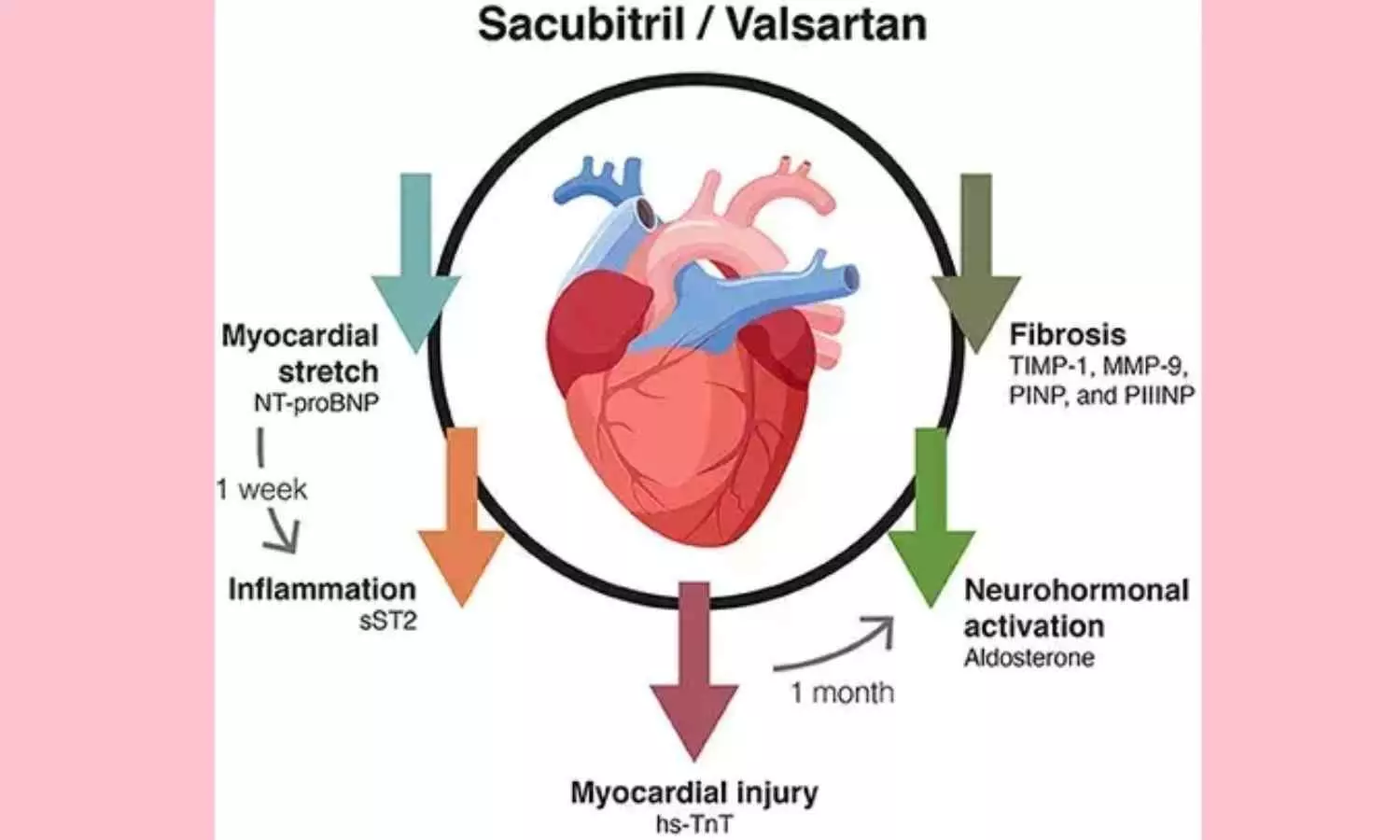Sacubitril/Valsartan may Improve Diabetic Cardiomyopathy via Immunomodulation of Inflammation: Study

A recent study published in Cardiovascular Diabetology reveals that Sacubitril/Valsartan, a combination of a neprilysin inhibitor and an angiotensin receptor blocker, may improve diabetic cardiomyopathy (DbCM) by modulating inflammatory pathways.
This dual-action medication, known for its role in heart failure management, demonstrates potential in addressing the underlying inflammation associated with DbCM.
In both clinical and experimental settings, Sacubitril/Valsartan effectively reduced plasma neprilysin activity. In diabetic patients with pre-clinical heart failure with preserved ejection fraction (HFpEF), higher baseline neprilysin activity correlated with worsening cardiac performance over 18 months.
Treatment with Sacubitril/Valsartan improved diastolic dysfunction and pathological remodeling in DbCM mice, effects not observed with Valsartan alone.
Single-nucleus RNA sequencing indicated that progressive DbCM is characterized by chronic low-grade inflammation, marked by increased infiltration of pro-inflammatory monocytes (Ccr2+ Ly6c^hi) and a reduction in MHC-II macrophages. Sacubitril/Valsartan treatment prevented these inflammatory changes. Further analysis identified interferon regulatory factor 7 (IRF7) as a central mediator in the drug’s immunomodulatory effects.
In vitro studies showed that the neprilysin inhibitor component, LBQ657, along with Valsartan, suppressed glucose-induced IRF7 expression and reduced the activation of cardiac fibroblasts.
These findings suggest that Sacubitril/Valsartan’s benefits in DbCM extend beyond hemodynamic effects, highlighting its role in modulating immune responses and inflammation. This immunomodulatory action may offer a novel therapeutic avenue for preventing the progression of DbCM to overt heart failure.
Reference:
Karuna, N., Kerrigan, L., Edgar, K., et al. (2025). Sacubitril/Valsartan attenuates progression of diabetic cardiomyopathy through immunomodulation properties: an opportunity to prevent progressive disease. Cardiovascular Diabetology, 24, Article 206. https://doi.org/10.1186/s12933-025-02741-5
